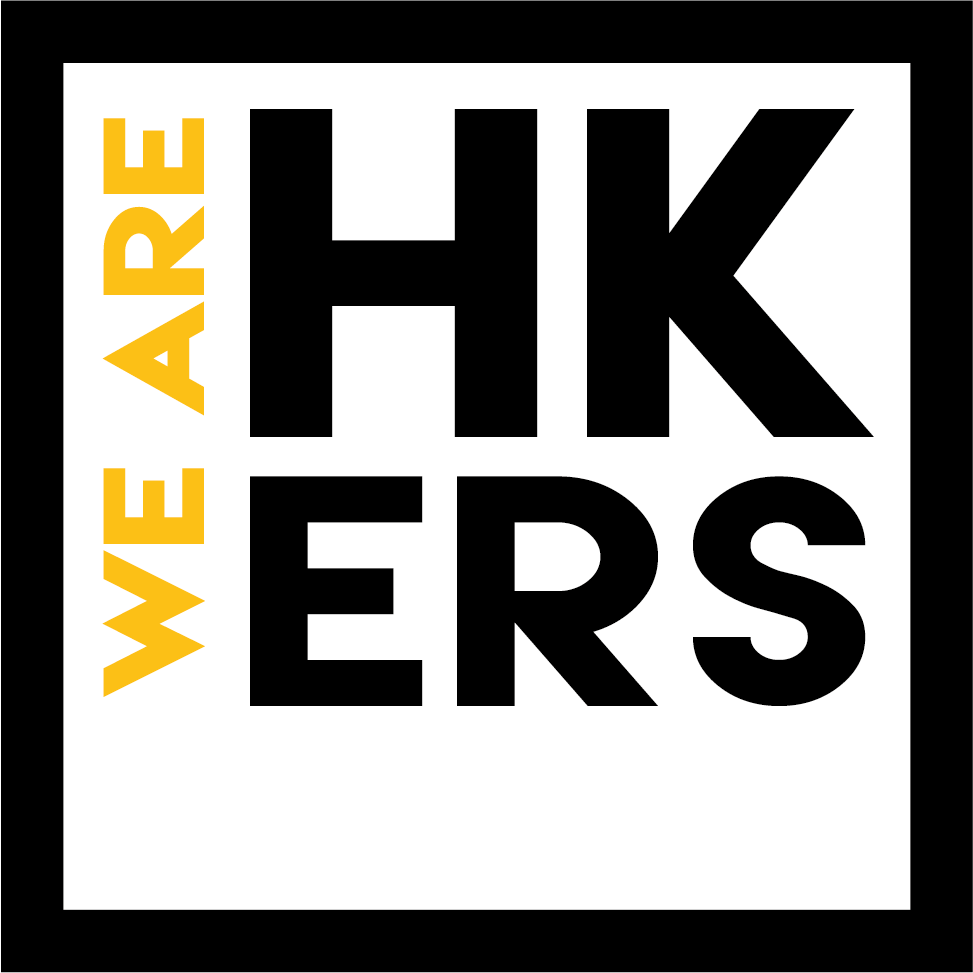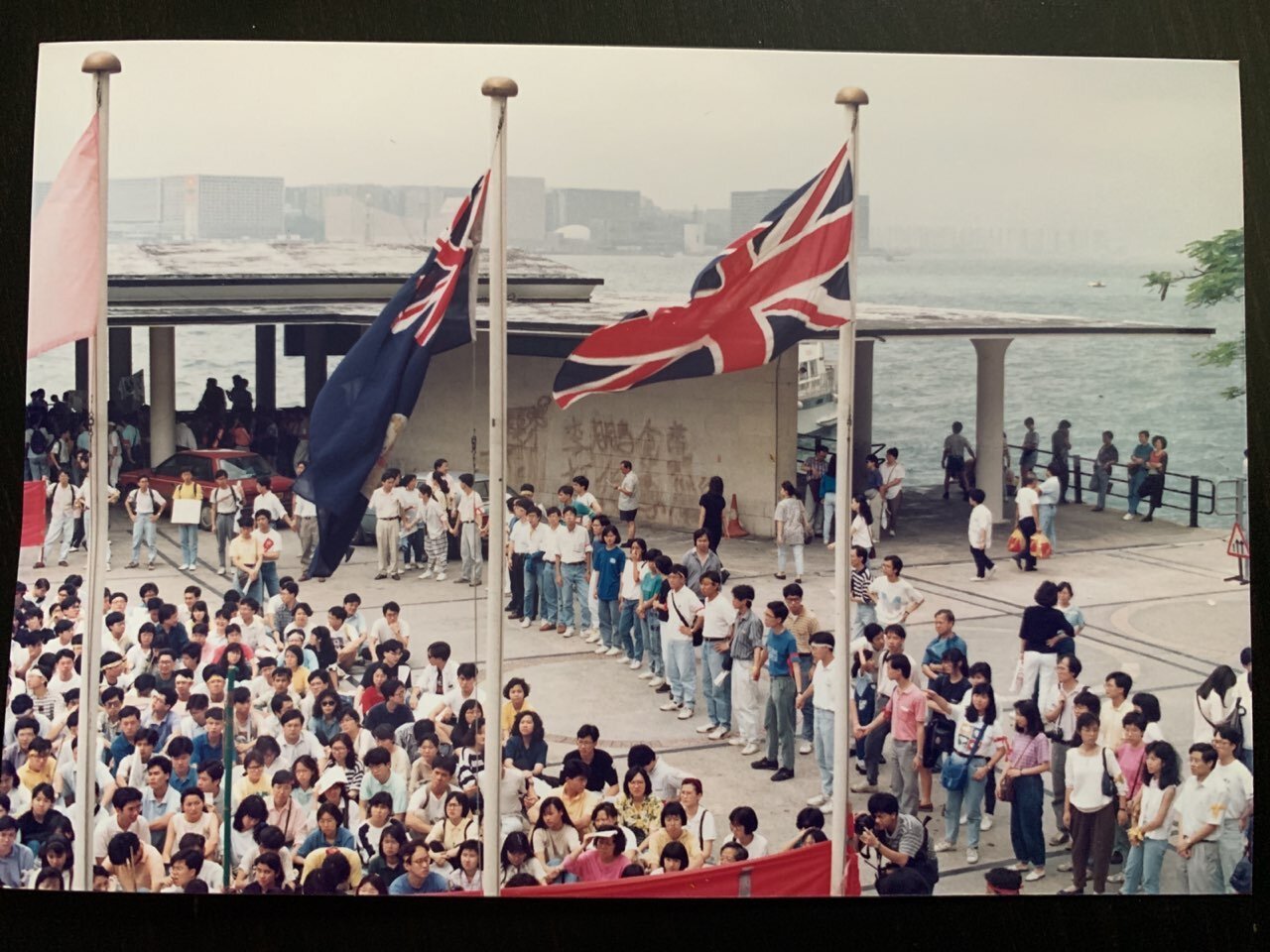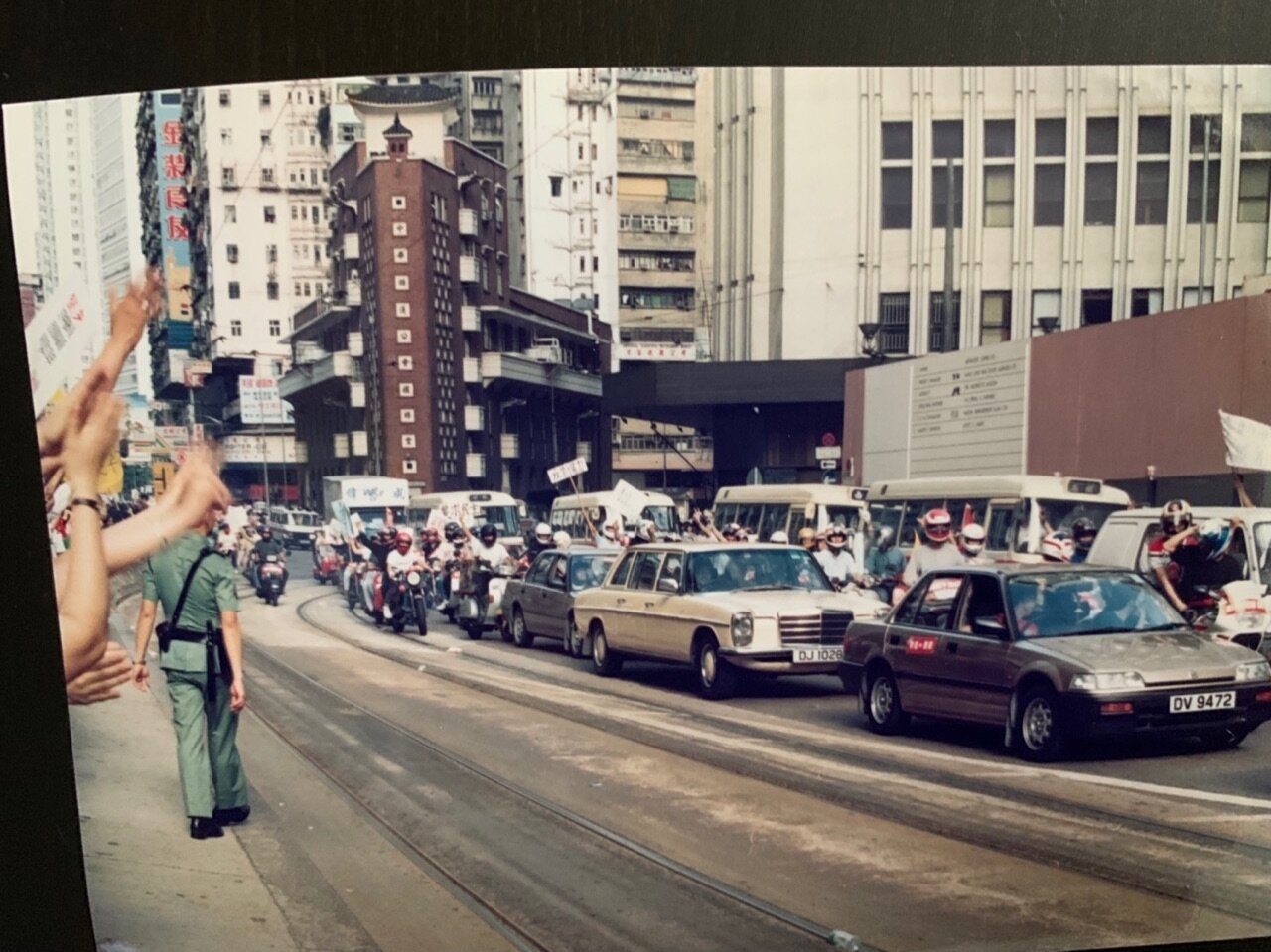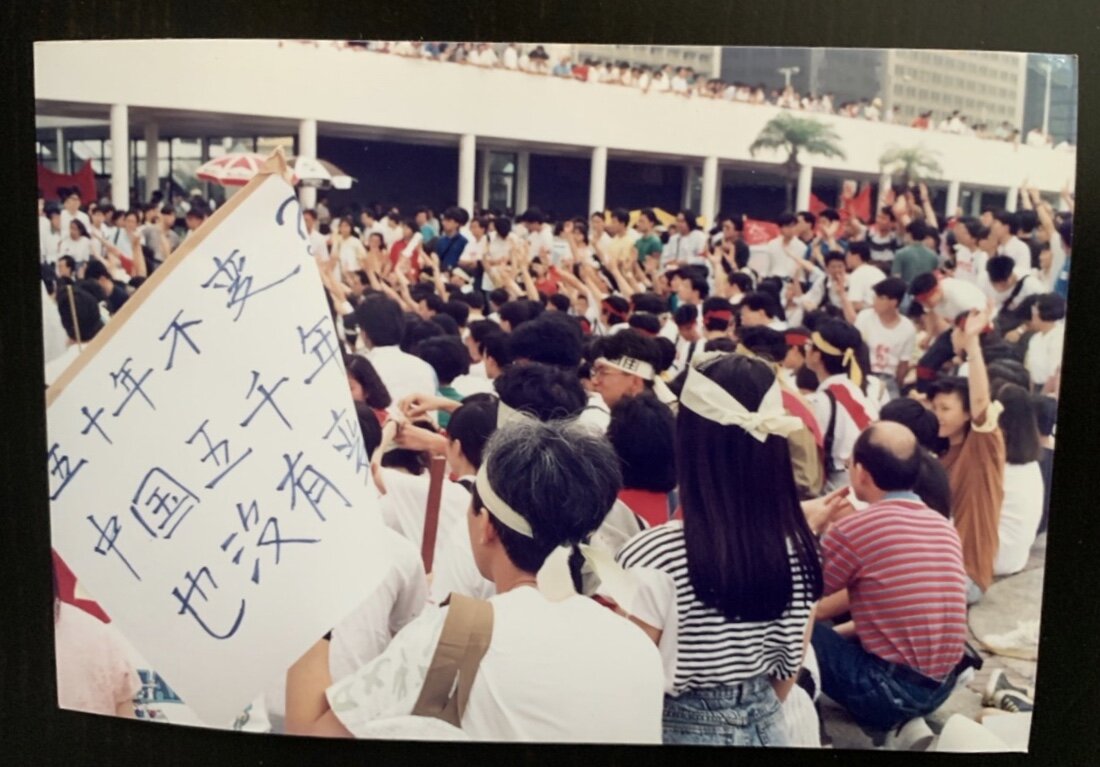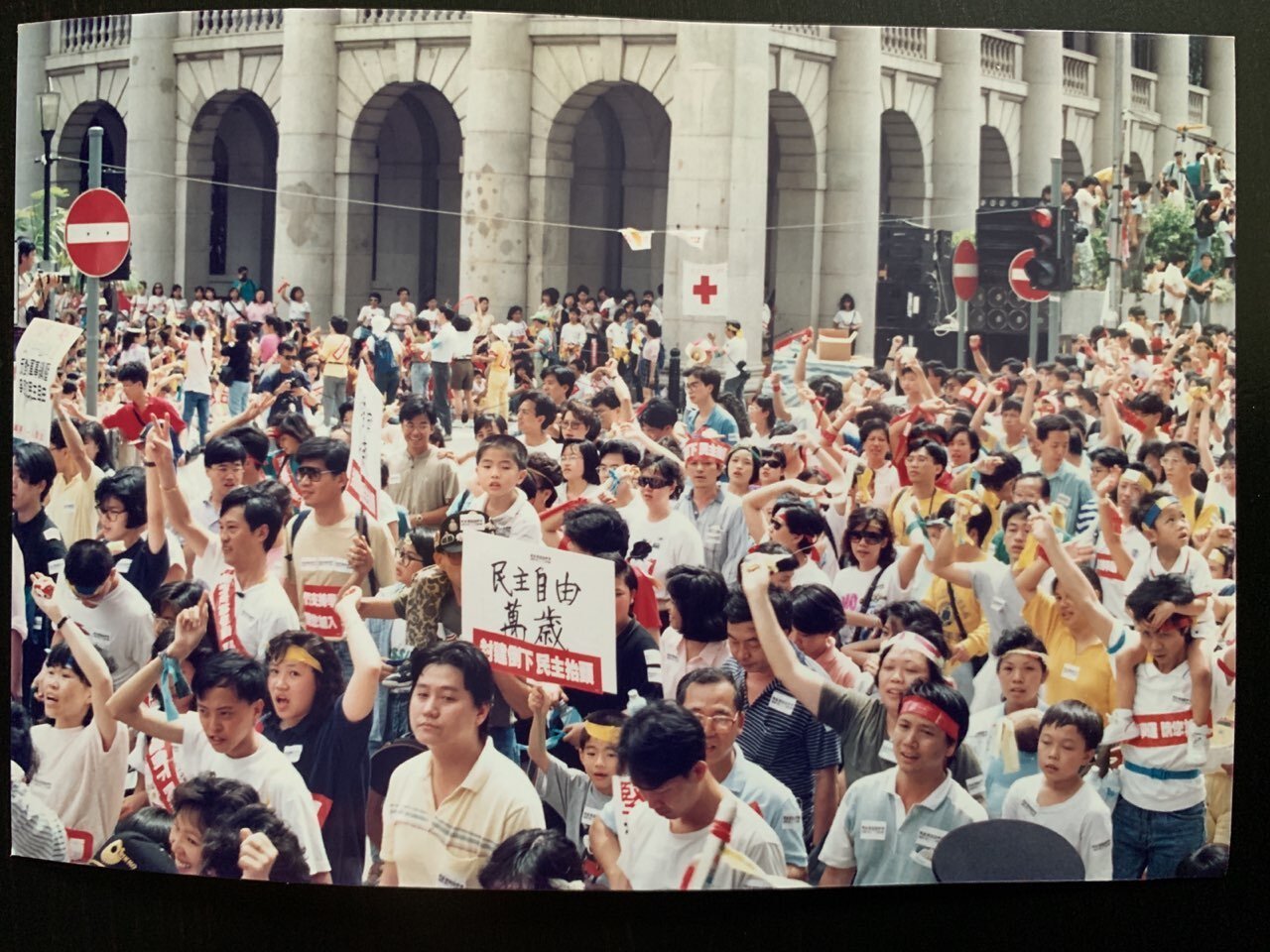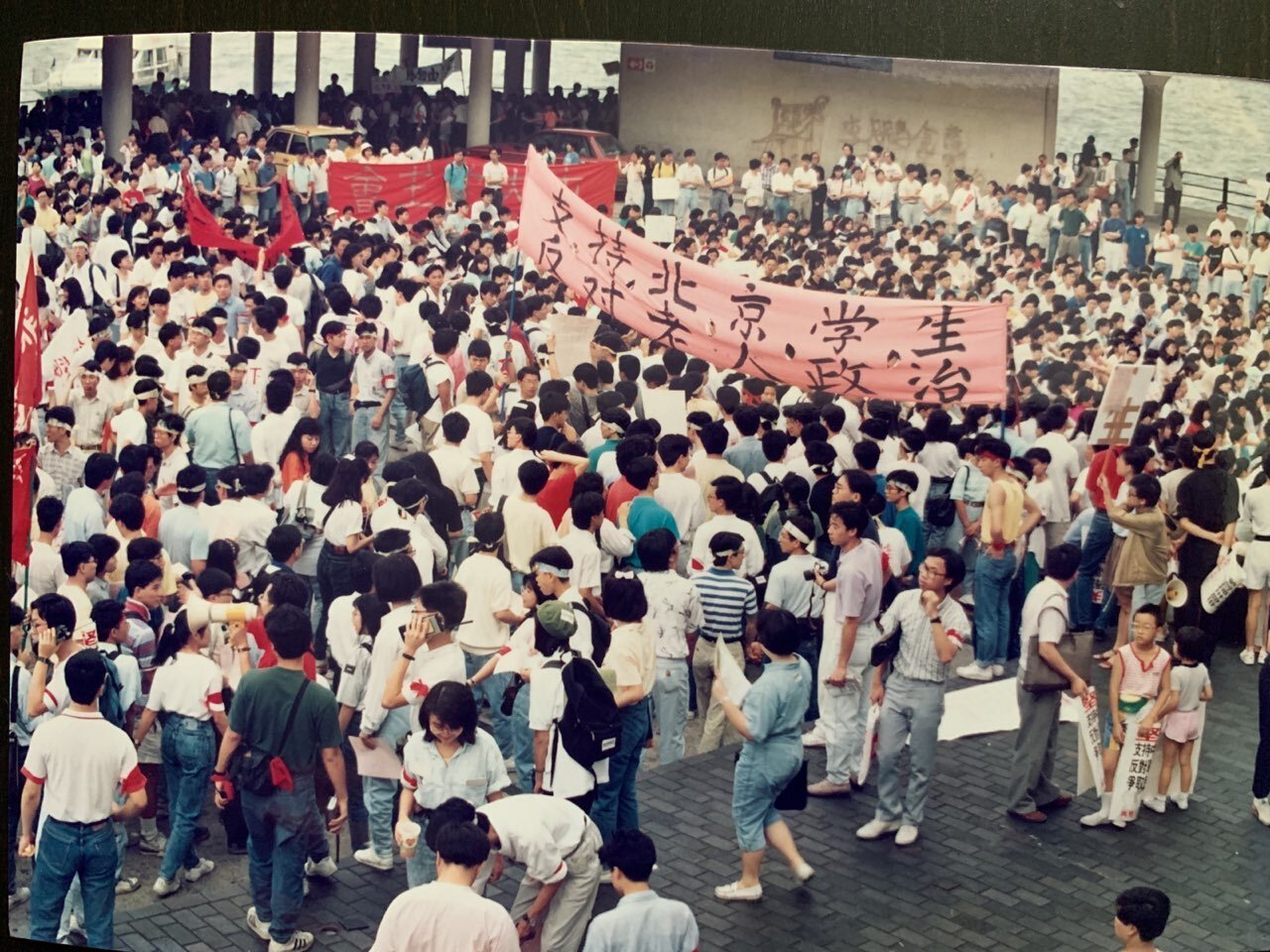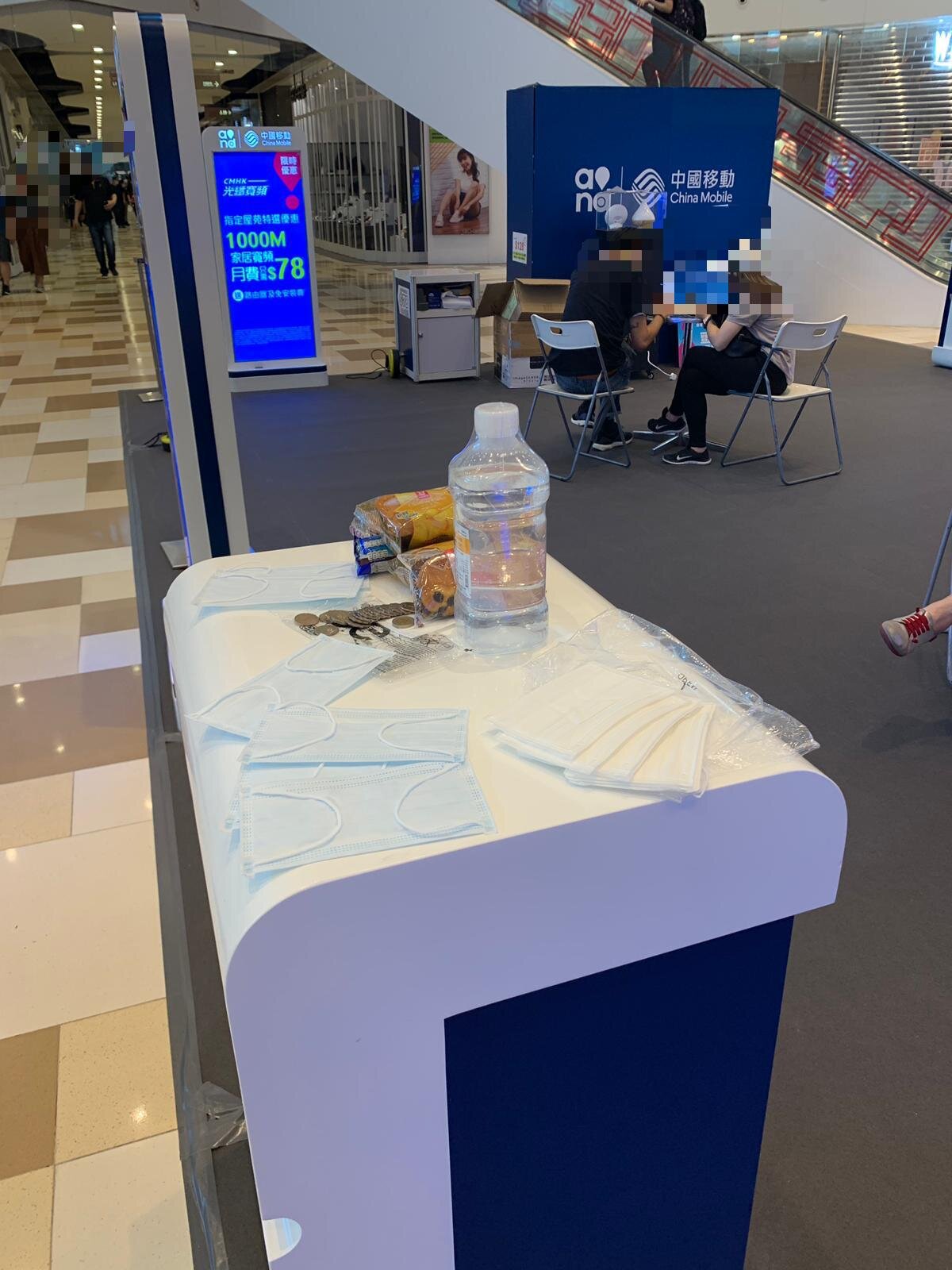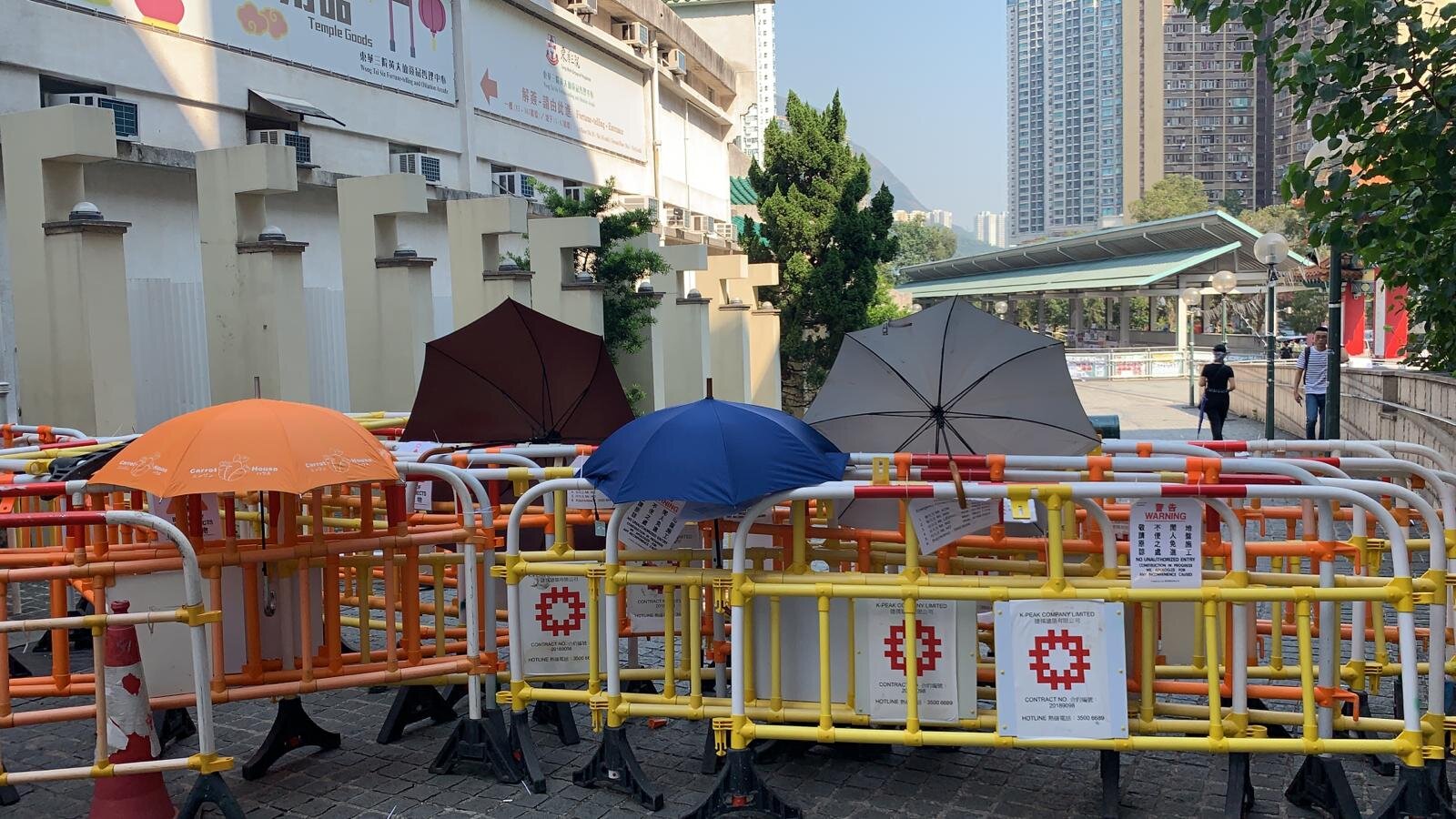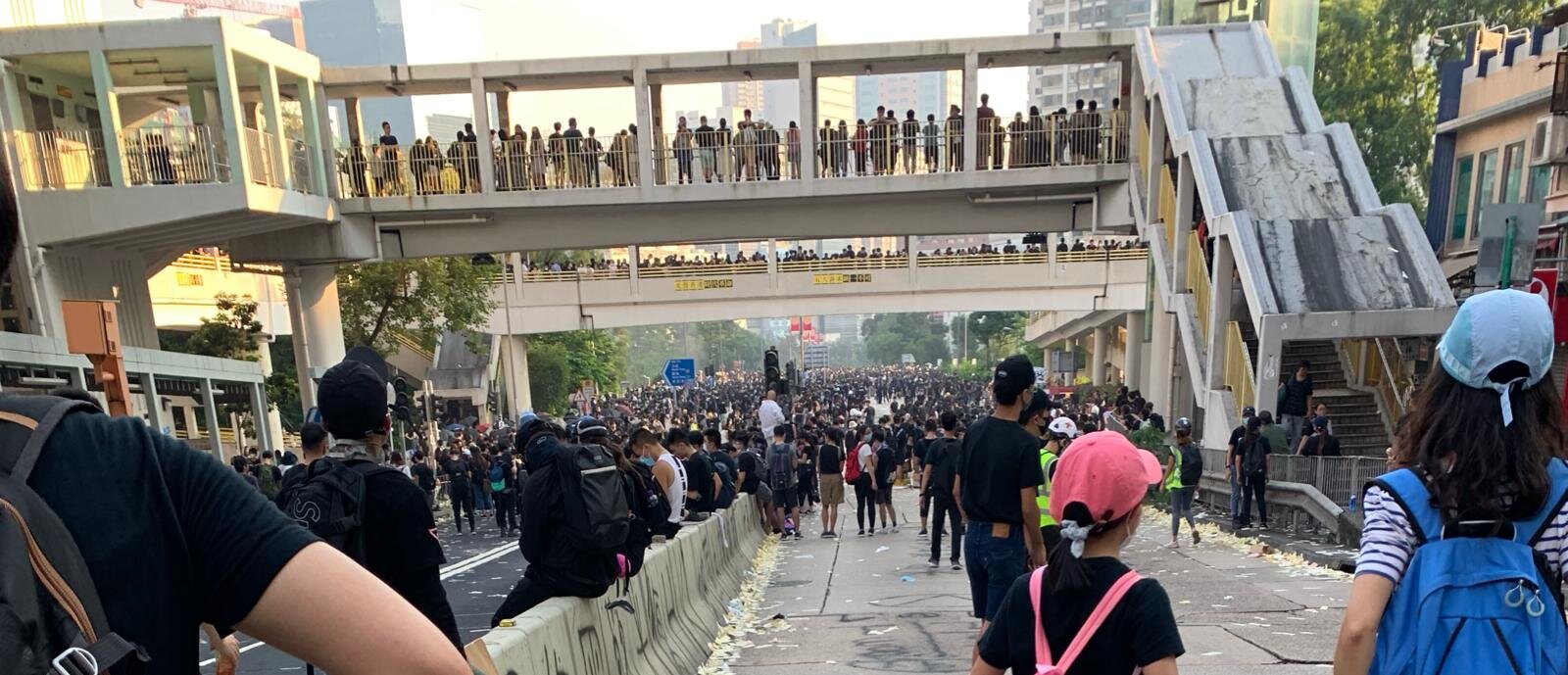Misshomer | From Tiananmen to Anti-ELAB: My lingering fear from 30 years of protesting
Misshomer is a Hong Konger in her 50s who has a long history of protesting in Hong Kong. Find out her take on how the political landscape has changed since 1989 and her personal thought-provoking experience from a 1 Oct protest.
“I overheard a boy, probably six years old, ask his father, “Are there any police? Are we safe here?” How do we tell them that the police, supposedly trained to protect, have become a political tool to wipe us out, their fellow citizens?”
Journalist: Penguine
Photos: Provided by the interviewee
Illustrator: Tendarken
I am a long-time political advocate of freedom, democracy, and justice. Every year, I participate in the 4 Jun vigil for the Tiananmen Square Massacre (or some might call it the Tiananmen Square ‘incident’ in 1989). I was a student back then. I still remember joining the rally* even when a No 8 typhoon signal was hoisted - there were a lot of people. Many of my closest high school classmates joined me. We supported the many Beijing protesters in their fight for democracy in China. How ironic to see what’s happening here in Hong Kong 30 years since 1989.
The fear of many Hong Kongers
In a way, I believe that the 4 Jun incident in 1989 has traumatised Hong Kongers. Before this, we already had an in-built impression of how thuggish the Chinese Communist Party (CCP) can be to stay in power. Many of our older generations escaped to Hong Kong from the Mainland because of the Cultural Revolution. My parents are no different, they escaped to Hong Kong during the Revolution, as did my husband’s parents. His parents were targeted even more because of their wealthy and educated background. Many fear the CCP. We know the true face of the CCP. We know how inhumane and ruthless the CCP can be in order to maintain absolute power. They don’t care about their people.
With the Tiananmen incident, this fear has solidified in many Hong Kongers’ hearts during that time, and it has definitely contributed to the wave of immigration in Hong Kong right before the Handover in 1997. Like many others, I decided to immigrate to Canada.
Some years after, my family and I have returned to Hong Kong to live, so I still attend the annual 4 June vigil. As time passed, things have changed. People changed. None of my classmates go to the vigil anymore - I’ve become the only participant amongst them. My husband doesn’t go either. That’s the nature of Hong Kongers - we are very forgetful.
However, the sense of fear and distrust towards the CCP still lingers in the hearts of Hong Kongers, especially because of the unknown implications of what would happen in 2047 when the "one country, two systems" in the Basic Law loses its validity. Of course, some of them may think differently because of the rapid economic development under the CCP. They probably think it’s not so bad once we reach 2047.
Never have I imagined that Hong Kong would rapidly deteriorate into a police state like today. In hindsight, the Umbrella Revolution and what unfolded afterwards in 2014 were really a sign. The Causeway Bay bookseller had gone ‘missing;’ a joint checkpoint inside the Hong Kong border for the High Speed Rail was set up; the HK-Zhuhai-Macau Bridge was built… These are all signs of the Chinese government increasing their control over Hong Kong.
Changes in the political landscape
At first, I really thought this Anti-ELAB movement would be similar to the Umbrella Revolution, as in it would die down quickly, and the government would settle the matter in a reasonable enough manner. Well, it has been six months or so now. Clearly, the movement is very different from the Umbrella Revolution.
One night over dinner, my family and I talked about the landslide number of supporters in this current movement in comparison to the Umbrella Revolution in 2014. My daughter said, “Back then, we were demanding to expand our democracy with genuine universal suffrage during the Umbrella Revolution; this time, we are defending our rights. The CCP is extending their ‘legal system’ to Hong Kong by implementing the Extradition Amendment Bill. The nature of these two movements is fundamentally different.”
I thought that perhaps this is why people have become more concerned than ever. Maybe this is also why my husband has now become a ‘yellow ribbon’ (pro-democracy supporter) despite the fact that he was one of those cynical realists in 2014, believing that we should accept the CCP’s version of ‘universal suffrage’ (袋住先). Their proposal was to implement the concept of universal suffrage but the candidates are selected and approved by the CCP. But seeing how the police has become increasingly ridiculous, and what happened on 21 Jul 2019 and many more instances, he was converted into a solid ‘yellow ribbon.’
1 Oct - Mourning Day
I used to be one of those peaceful, rational, and non-violent (PRN) protesters. I only went out to protest when a ‘letter of no objection’ was issued by the police. However, the police have used this power in their favour to prevent people from taking to the streets in peace.
Therefore, I have decided to come out and ‘mourn’ on the ‘mourning day’ of 1 Oct, which is supposed to be the CCP’s 70th year of establishment.
At this point, I am already quite familiar with how the ‘flower blossoming’** protests work, and I know what to expect. There will be no ‘Empty R’***. There will be a bunch of riot police on standby even before the protest starts - these are all ‘appetizers’ of the protests. Most importantly, there will always be tear gas, which is obviously the ‘main course.’
On 1 October, my husband, my daughter’s godmother, and I decided to go to Wong Tai Sin Square to protest for the sake of our conveniences. We went there early. The decision of the time and location was really based on my experience in the past Anti-ELAB protests. I saw that there was an interracial couple picnicking in the square. They insisted that they were only here for a picnic, saying, “Is there any law against picnicking? I don’t think so.” They were obviously those typical PRN protesters like us. On the other hand, during the protest, some frontliners were also present. They were in all-black outfits and gear, with their faces completely covered up. However, most of the protesters at the Square were PRNs.
The clash in Wong Tai Sin between the protesters and the police happened much earlier than I had expected. I heard that there were already some roadblocks built on the other side of the Square. Tear gas had already been deployed. To be honest with you, I was already very familiar with tear gas at this point. Although we didn’t have gear, I had prepared myself with the necessary things in case I was exposed to tear gas.
Since my daughter’s godmother is a ‘silver-haired’ protester (i.e. protesters usually of older age), we went into Wong Tai Sin’s mall to minimise our exposure to tear gas. While we were in the mall, we left some money, food, and face masks on a table, intending to support some younger frontliners who have been financially cut back by their parents. While we were deciding on our next step, I saw some young girls looking at the pile of supplies. They hesitated for a very long time before one of them finally took a single loaf of bread.
Then, I overheard a boy, probably six years old, ask his father, “Are there any police? Are we safe here?”
That question struck me hard. I can still vividly remember that scene. I thought, “How should we teach kids about what is happening in Hong Kong? How do we tell them that the police, supposedly trained to protect, have become a political tool to wipe us out, their fellow citizens?”
I have no clue how to answer those questions.
“I am Misshomer, I am a HKer.”
- February 2022
- December 2021
- August 2021
- May 2021
- April 2021
- March 2021
- February 2021
- January 2021
- December 2020
- November 2020
- October 2020
- September 2020
- August 2020
- July 2020
- June 2020
- May 2020
- April 2020
- March 2020
- February 2020
- January 2020
- December 2019
- November 2019
- October 2019
- September 2019
- July 2019
- June 2019
* A pro-democracy mass rally organised in support of the student activists in Beijing on 20 May 1989. Another rally was also organised on 21 May 1989, more commonly known as Hong Kong’s first “million-strong rally” (百萬人大遊行).
** Protests organised without any particular political organizations; without applying for ‘letter of no objection’; free-flowing and/or spontaneous
*** On 5 Oct, the day after the anti-mask law was implemented via the emergency regulations ordinance, the government shut down the MTR for a day. Hong Kongers made fun of the MTR by calling it ‘Communist Party Railway.’
